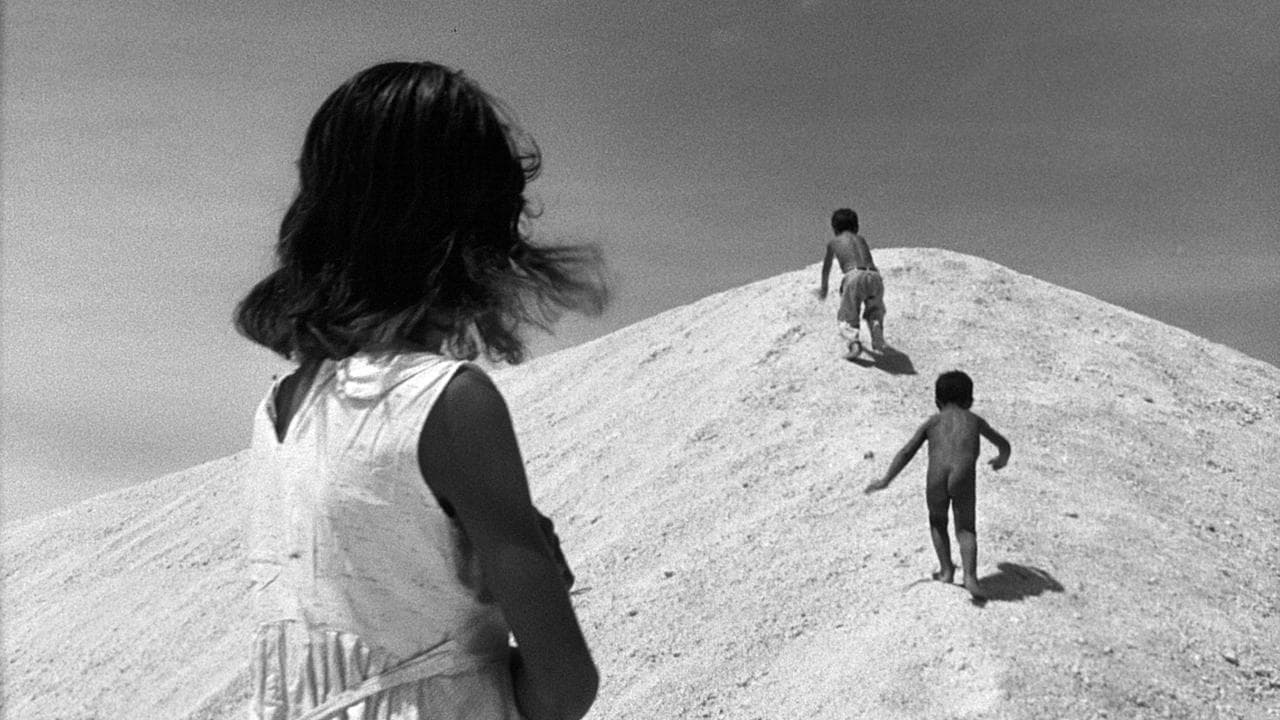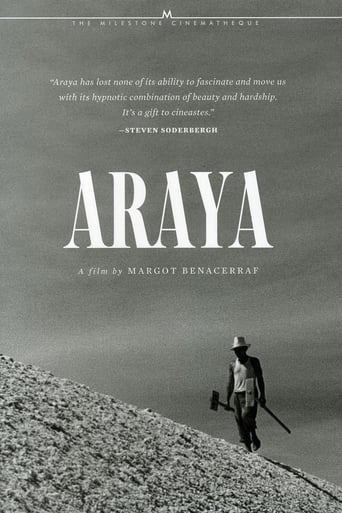

There are moments that feel comical, some horrific, and some downright inspiring but the tonal shifts hardly matter as the end results come to a film that's perfect for this time.
... View MoreStory: It's very simple but honestly that is fine.
... View MoreThe film's masterful storytelling did its job. The message was clear. No need to overdo.
... View MoreIt's simply great fun, a winsome film and an occasionally over-the-top luxury fantasy that never flags.
... View MorePharaonic Labour. 450 years of medieval colonialist servitude, then machines.Machines: deliverance or dispossession and displacement? Lack of social/cultural/infrastructural evolution for 450 years, sun and sea and salt and fish, barren landscape, anachronistic idyllic utopian machine, inhabitants fixed unchanging volitionless coefficients for 450 years, until an external colonialistic entity introduces variation in the form of machinery/industrialization.Sea salt is what remains when water is spent, when matter is spent, when the body is spent, when energy is spent, a fusion of sunlight and water crystalized into a bright glowing white geometrical structure, a cubic structure seemingly forged from liquid light energy, dregs, ashes, dust, classified as a mineral, a mineral comprised of 80 essential chemical elements, a mineral essential in sustaining human and animal and ocean life, in addition to many plant lives. Salt is essential to amniotic fluid; like the seas and oceans, amniotic fluid is extremely salty and that salty environment is necessary to producing and fostering the growth of the human embryo.The human mechanics of salt milling parallel anatomical interactions of salt and water: pre-programmed robotic factoryline clockwork, precise, balanced, each gesture and and cellular process hereditary. Except sea salt mining necessitates dehydration of water from shallow water pockets in order to isolate and extract salt, whereas the human body, replete with oceans of water within the cells and throughout the body, necessitates a perfect balance of salt and water to avoid the debilitating and lethal effects of dehydration.It's hard to lambast the exploitative machine of salt mining because salt is essential. Everybody needs salt and somebody has to extract it. The director muted the political/social critique, instead translating the labour into something that is part of the natural order of the universe of Araya, the people a special species created for the sole purpose of salt extraction, an approach that invites challenging questions. Isn't human labour part of the natural order of the universe? What is wrong with manual labour? Do we really want to introduce mechanical industrialization in such a purely natural environment? Do we really want to introduce into this environment all the social/political mechanisms designed to protect workers and enhance their quality of life, mechanisms that always do as much harm as good? Why interrupt something that is not as bad as it appears to be? Fruit pickers and slaughterhouse workers and landfill/soild-waste workers in the USA have it 1000x worse than the people of Araya did 50-something years ago pre-machinery. There is nothing wrong about people choosing to live an isolatory life of salt milling and fishing. Their lives are free of all the capitalistic consumeristic materialistic poisons destroying most of the world, so why introduce those trappings there? It's a double-edged sword, local inhabitants doing all the hard work is colonialist exploitation and must be stopped but "stopped" really means "replaced by machines" and we know that really means all the trappings of the west are unleashed into a purely natural traditional environment, and two of those trapping (industrialization, environmental degradation) visually punctuate the end of the film. Many challenging issues raised in Araya. A bounty of issues that are dominating the social/political spectrum right now.
... View MoreMargot Benacerraf made this documentary about the hard and tedious life of workers in Venezuela who dry out and then transport salt from their marshes. It's backbreaking work and goes on day after day with no end. Not surprisingly, it makes for some VERY tedious and dull viewing. What makes it even worse is that the film often is very artsy (such as the first seven minutes of the film during which there is no narration AND the camera seems to focus on anything but the salt or the workers). Certainly this is not a film to be enjoyed by the average viewer (they'll hate it) but is best seen as an ethnographic documentary about a tough way of life back in 1959. I have no idea if this sort of work continues to this day. Nice camera-work (when it's not focusing on clouds, cacti or other irrelevant stuff) but also a film that defies my ability to give it a numerical score. And, it also bored me to tears.
... View MoreA Venezuelan documentary about the salt pyramids in a place called Araya and those who made their living there. Trust us, whatever job you're doing right now, it is nothing compared to what these people have to put up with. They toil from day to night, with little payment and in the scorching sun. They were resigned to their fate since childhood and it is the only thing they know. The director chose to shoot like a fly on the wall (in this case, on a salt pyramid) what they actually do in a day. After you watch this, you'll appreciate your job and life like you never did before. It is an affirmation of the human ability to take on what seems impossible and turn it into an amazing possibility. The cinematography in black and white was illuminating too. Take a chance and give this a try. You won't regret it and might even learn a thing or two about human being's indomitable perseverance.
... View MoreThis is a very interesting documentary about a day in the life of two families of peasants in northern Venezuela. It records how they inherited their work from their parents and grandparents and how they extract the salt from sea water in order to sell it to survive in a very far and isolated part of the world. I think this is one of the best latin american documentaries ever done, and one of the best I've ever seen in my life.
... View More